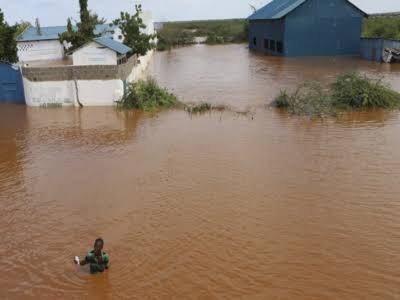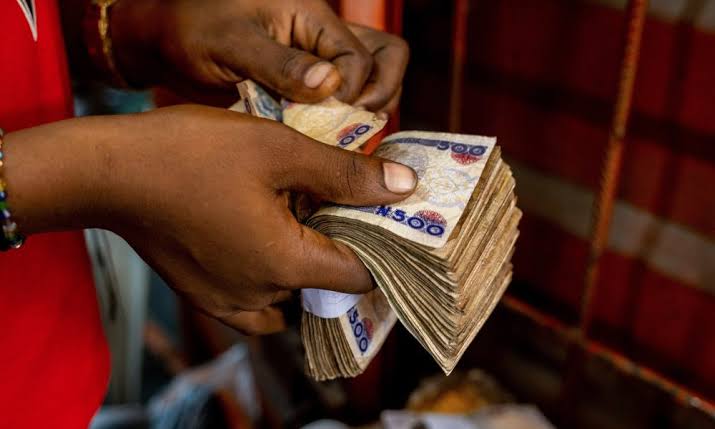Thailand moves to legalise same-sex marriage
Thailand has taken a historic step closer to marriage equality after the lower house passed a bill giving legal recognition to same-sex marriage.
It still needs approval from the Senate and royal endorsement to become law.
But it is widely expected to happen by the end of 2024, making Thailand the only South East Asian country to recognise same-sex unions.
It will cement Thailand’s reputation as a relative haven for LGBTQ+ couples in a region where such attitudes are rare.
“This is the beginning of equality. It’s not a universal cure to every problem but it’s the first step towards equality,” Danuphorn Punnakanta, an MP and chairman of the lower house’s committee on marriage equality, told parliament while presenting a draft of the bill. “This law wants to return these rights to this group of people, not grant them the rights.”
The new law, which was passed by 400 of 415 of lawmakers present, will describe marriage as a partnership between two individuals, instead of between a man and woman. And it will give LGBTQ+ couples equal rights to get marital tax savings, to inherit property, and to give medical treatment consent for partners who are incapacitated.
Thailand already has laws that ban discrimination over gender identity and sexual orientation and is, therefore, seen as one of Asia’s most LGBTQ+ friendly nations.
But it has taken many years of campaigning for same-sex couples to come this close to marriage equality.
Past attempts to legalise same-sex marriage failed despite broad public support. A government survey late last year showed that 96.6% of those polled were in favour of the bill.
“Yes, I’m watching the parliamentary debate and keeping my fingers crossed,” says Phisit Sirihirunchai, a 35-year-old openly gay police officer. “I’m glad and already excited that it is really going to happen. I am coming closer and closer to seeing my dreams come true.”
Phisit said he and his partner, who have been together for more than five years, have been planning to get married on the day the law comes into effect.
Several political parties promised to recognise same-sex unions as part of their campaign before last year’s election. Prime Minister Sretta Thavisin has also been vocal in his support since taking office in September last year.
In December, the lower house passed four proposed bills to recognise same-sex marriage – one was put forward by Mr Thavisin’s administration and three came from opposition parties. These were then combined into a single bill, which the lower house passed on Wednesday.
However, the Thai parliament has so far rejected proposals to allow people to change their gender identity, despite the high visibility of transgender communities here.
Thailand still stands out in South East Asia, where same-sex intimacy is criminalised in some countries. It’s also an outlier in Asia.
In 2019, Taiwan’s parliament became the first in Asia to legalise same-sex marriage. Nepal registered its first same-sex union in November last year, five months after the Supreme Court ruled in favour of it.
This was just one month after India’s top court had ruled against it, leaving the decision to the government, which said it would set up a panel that would decide on more legal rights for same-sex couples.
The LGBTQ+ community has also been fighting for marriage equality in Japan, where district courts have ruled that the ban is unconstitutional. Polls show public support for it but stiff opposition from older, traditional ranks of the ruling party has stymied efforts.
Singapore scrapped a colonial-era law that banned gay sex in 2022, but also amended its constitution to prevent the courts from challenging the definition of marriage as one between a man and a woman.
Japan nappy maker shifts from babies to adults
A Japanese nappy maker has announced that it will stop producing diapers for babies in the country and, instead, focus on the market for adults.
Oji Holdings is the latest firm to make such a shift in a rapidly ageing Japan, where birth rates are at a record low.
Sales of adult nappies outpaced those for infants in the country for more than a decade.
The number of babies born in Japan in 2023 – 758,631 – was down by 5.1% from the previous year.
It was also the lowest number of births on record in Japan since the 19th Century. In the 1970s, that figure stood at more than two million.
In a statement, Oji Holdings said its subsidiary, Oji Nepia, currently manufactures 400 million infant nappies annually. Production has been falling since 2001, when the company hit its peak – 700 million nappies.
Back in 2011, Japan’s biggest diaper maker, Unicharm, said its sales of adult diapers had surpassed those for babies.
Meanwhile, the adult diaper market has been growing and is estimated to be worth more than $2bn (£1.6bn). Japan now has one of the world’s oldest populations, with almost 30% of them aged 65 or older. Last year, the proportion of those aged above 80 surpassed 10% for the first time.
Oji Holdings also said it would continue to make baby diapers in Malaysia and Indonesia where it expects demand to grow.
A shrinking population, the result of both ageing and plummeting birth rates, has become a crisis for Japan, one of the world’s largest economies. But the Japanese government’s efforts to address these challenges have met with little success so far.
Increased spending on child-related programmes and subsides targeting young couples or parents don’t appear to be boosting birth rates. Expert say the reasons are complex, ranging from lower marriage rates and more women joining the workforce, to the increased costs of raising children.
“Japan is standing on the verge of whether we can continue to function as a society,” Prime Minister Fumio Kishida said last year, adding that it was a case of “now or never”.
But Japan is not alone. Fertility rates have also been dropping in Hong Kong, Singapore, Taiwan and South Korea, the last of which has the lowest birth rate in the world.
China too saw its population fall for the second year in a row in 2023 and, like Japan, has introduced various incentives to boost birth rates. But an ageing population and the impact of a decades-long one child-policy, which ended in 2015, are creating demographic challenges in China too.
Colorful paintings of daily life uncovered in 4,300-year-old Egyptian tomb
Colorful paintings of daily life in ancient Egypt have been discovered in a tomb dating back more than 4,300 years.
The tomb, known as a mastaba, was found in the pyramid necropolis of Dahshur, about 25 miles south of Cairo, during a recent Egyptian-German archaeological mission.
Dahshur is the southernmost of the great pyramid necropolises of the Old Kingdom in the vicinity of the ancient capital of Memphis. The main attractions there are two large pyramids of King Sneferu: the so-called Bent Pyramid and the Red Pyramid.
Made from unfired mud brick, the rectangular mastaba measures about 26 feet by 39 feet (8 meters by 12 meters) and features seven burial shafts, as well as another shaft for ceramic bowls and other items used in burial rituals.
According to inscriptions on a massive limestone false door, the tomb belonged to a man named Seneb-nebef, who served in the administration of the residents of the palace district, as well as his wife, Idut.
The shape of the mastaba, together with the inscriptions, images and ceramics found inside, suggest it dates from the end of the 5th or the beginning of the 6th dynasty -approximately 2,300 BCE.
Stephan Seidlmayer, former director of the German Archaeological Institute in Berlin, led the expedition.
He told CNN in an email: “The corridor and the cult chamber were decorated with subtle paintings on mud plaster – a rarity in the necropolis of Dahshur. Despite extensive destruction, numerous images have been preserved. They show pictures of the tomb owner and his wife in front of the offering table, scenes from daily life – donkeys on the threshing floor, ships on the Nile, a market place – and servants who bring gifts for the mortuary cult.
“In their elegant forms and perfect execution, the pictures offer valid evidence of the artistic milieu of the capital region of the developed Old Kingdom.”
According to a statement from the Egyptian Ministry of Tourism and Antiquities, inscriptions revealed that the owner of the tomb “held several positions in the royal palace in the administration of tenants,” while his wife “held the titles of Priestess of Hathor and Lady of the Sycamore.”
The German Archaeological Institute Cairo has been excavating at Dahshur since 1976. The initial stages focused on the pyramids of King Sneferu from the Old Kingdom and King Amenemhat III from the Middle Kingdom.
More recent excavations have, however, centered on the tombs of great statesmen, priests and administrators from same eras.
Seidlmayer and his team will continue to excavate the site “in an attempt to search for more secrets of this area,” the Egyptian Ministry of Tourism and Antiquities said in its statement. It added: “Cleaning and documentation work will be carried out on the tomb and its inscriptions during the coming period.”
UN maternity aid looted in Port-au-Prince as Haiti crisis deepens
A container carrying essential items for newborn babies and their mothers – including resuscitators and other critical supplies – was looted in Port-au-Prince on Saturday, aid agency UNICEF said in a statement, as gang violence and a humanitarian crisis worsen in the Haitian capital.
In addition to maternity and neonatal supplies, the looted container also held “early childhood development and education and water equipment,” UNICEF said. More than 260 humanitarian-owned containers at the port are now controlled by armed groups that breached the main port last week, the UN’s child agency added.
The theft of the supplies “occurs at a critical moment when children need them the most,” said UNICEF representative Bruno Maes in Haiti. “Looting of supplies that are essential for life saving support for children must end immediately and humanitarian access must remain safe,” Maes added.
“Depriving children of vital health supplies amidst a collapsing healthcare system is a violation of their rights.”
Since January, violence in Haiti has exacerbated an already crumbling healthcare system.
Three out of four women and children in the Port-au-Prince area do not have access to basic public health and nutrition, according to UNICEF.
There are only two functional surgical operating facilities available in the capital. Six out of 10 hospitals across the country are unable to function due to electricity, fuel and medical supply shortages.
A man sets a tire on fire during a demonstration following the resignation of Haitian Prime Minister Ariel Henry.
The bloodshed has continued in recent days, with several “bandits” killed during a police operation in a Port-au-Prince neighborhood where gang leader Jimmy “Barbeque” Cherizier lives and operates, the Haitian National Police (HNP) announced on Saturday.
Authorities said they exchanged fire with Cherizier’s men in the operation carried out on Friday, to “thwart the actions of armed gangs.” Police also said they seized firearms and unblocked roads in the Lower Delmas neighborhood.
“New strategies are being implemented by the police institution with the aim of reclaiming some areas occupied by these armed gangs in recent days, in order to facilitate the free movement of peaceful citizens,” a statement from the HNP read.
Two police sources told CNN on Friday that authorities had launched the operation in Lower Delmas as special forces pursued Cherizier.
The HNP did not specify if police had located Cherizier but said a report on the progress of the operations would soon be made public.
Haiti has struggled to resolve a long-running political and humanitarian crisis and 80 percent of Port-au-Prince is currently controlled by gangs, according to UN estimates.
Inside the country, few safe spaces remain. All roads leading out of Port-au-Prince these days have been blocked by gangs. National police have fought back but with limited resources.
All access to ports and the international airport has been blocked.
Nothing is coming in either. Grocery stores are running out of food, gas stations are out of fuel and hospitals are short on blood.
“Failure to stop the violence and reopen critical logistics routes will significantly exacerbate the healthcare crisis,” said Maes. “We are witnessing a humanitarian catastrophe, and there is little time left to reverse it.”
A CNN crew was able to land in Port-au-Prince by helicopter on Friday following days of on-again, off-again plans that required detailed security arrangements and multiple layers of diplomatic approval.
Meanwhile, the first flights of a UN air bridge between Haiti and the neighboring Dominican Republic have been completed, UN sources told CNN. For now, the only option for coming into and leaving Port-au-Prince is a private evacuation helicopter, available to wealthy foreigners and diplomats – where a single seat currently can cost more than $10,000.
Medical supplies would be the first freight, sources said, with UN workers being rotated in and out of the country.
Six killed after suicide bomber rams convoy of Chinese engineers in Pakistan
Six people have been killed after a suicide bomber rammed a vehicle into a convoy of Chinese engineers working on a dam project in north-west Pakistan, in the third significant attack on Chinese interests in the country in a week.
The first two attacks targeted a Pakistani naval airbase and a strategic port used by China in the south-west province of Balochistan where Beijing is investing billions in infrastructure projects.
The engineers were en route from Islamabad to their camp at the dam construction site in Dasu in the province of Khyber Pakhtunkhwa, said Mohammad Ali Gandapur, the regional police chief.
“Five Chinese nationals and their Pakistani driver were killed in the attack,” Gandapur told Reuters.
Dasu is the site of a large dam and the area has been attacked in the past. A blast on a bus in 2021 killed 13 people, including nine Chinese nationals.
Chinese engineers have been working on a number of projects in Pakistan with Beijing investing more than $65bn (£51.4bn) in infrastructure works as part of the China-Pakistan economic corridor (CPEC) under Beijing’s wider belt and road initiative.
No one claimed responsibility for Tuesday’s attack, nor was there a claim for the 2021 attack. Pakistan is home to twin insurgencies – one by Islamists and the other ethnic militants seeking secession.
While Chinese interests are primarily targeted by the ethnic militants seeking to push Beijing out of mineral-rich Balochistan, they generally operate in the country’s south and south-west – far from the site of Tuesday’s attack.
Islamists mostly operate in Pakistan’s north-west, the area where the convoy was attacked.
Khyber Pakhtunkhwa police have reached the spot and started relief operations.
A separate police source told Reuters the convoy was carrying staff of the construction firm China Gezhouba Group Company working on the Dasu hydropower project – the same company targeted in 2021.
Construction work ceased for months after that attack.
China’s embassy in Pakistan demanded investigations into the attack. “The Chinese embassy and consulates in Pakistan have immediately launched emergency work, demanding that the Pakistani side conduct a thorough investigation into the attack, severely punish the perpetrators, and take practical and effective measures to protect the safety of Chinese citizens,” the embassy said in statement.
Shehbaz Sharif, the prime minister, is expected to visit Beijing next week, according to a source in the prime minister’s office, his first since taking office after February’s elections.
A Pakistani military statement said the three attacks in the last week were aimed at destabilising the internal security situation, accusing “foreign elements” of aiding and abetting such incidents in Pakistan.
It said strategic projects and sensitive sites vital to Pakistan’s economic progress were being targeted in an effort to sabotage it and sow discord between Pakistan and its allies, most notably China.
Pakistan’s Indian Ocean port of Gwadar, on the route to vital Gulf shipping lanes, is managed by China, while nearby naval airbase Siddique is used to support security and development work, spearheaded by Beijing in Balochistan.
Both were attacked in recent days by Baloch separatists.
Ishaq Dar, the Pakistani foreign minister, condemned Tuesday’s attack and said Pakistan would continue to fight back against militants.
Pakistan’s foreign ministry said the life and safety of Chinese nationals in Pakistan was of paramount importance. “Pakistan will continue to work with our Chinese brothers in ensuring the safety and security of Chinese nationals, projects and institutions in Pakistan,” it said in a statement.
China’s Xi meets foreign business leaders amid jitters over economy
Chinese President Xi Jinping met with American business leaders and academics at Beijing’s Great Hall of the People, state media has reported, as he tries to woo foreign investment back to China after a challenging few years for the world’s second-largest economy.
The meeting on Wednesday included Evan Greenberg, the chief executive of the US insurance company Chubb, as well as Stephen Orlins, the president of the National Committee on US-China Relations, and Craig Allen, the president of the US-China Business Council.
Like many Chinese state functions, the event was highly choreographed, with footage showing attendees arranged in a square formation offset by elaborate floral installations.
Xi last met with US executives in San Francisco following the APEC summit there in November.
The meeting offers an opportunity for Beijing to shore up ties with US companies amid tensions with Washington and signal that their investment is welcome.
Many of the world’s top executives are already in Beijing this week for the China Development Forum, which took place on Sunday and Monday.
The forum’s guest list includes World Bank President Ajay Banga, International Monetary Fund (IMF) Managing Director Kristalina Georgieva and representatives of more than 100 multinational firms.
While business leaders have been able to meet with many senior Chinese leaders in recent days, the invitation to meet Xi signals a concerted effort by Beijing to address negative perceptions about the current business environment.
“It’s possible that investors and executives will air some grievances at the meeting and it’s possible that lobbying might make some impact, but I don’t think that’s what this meeting is really about,” Chris Beddor, the deputy China research director at Gavekal Dragonomics, told Al Jazeera.
“This is primarily about Xi sending a message. The message is that the Chinese government is attuned to the concerns of global companies and investors, and still wants their presence in the country, at a time when global businesses are very wary of China.”
Last year, foreign direct investment in China fell by 8 percent as companies scaled back operations and sought to “de-risk” their businesses amid continuing geopolitical tensions and a tougher regulatory environment.
Tightened espionage and state secret laws have also made some firms question whether they are truly welcome, while the COVID-19 pandemic drew attention to their over-reliance on Chinese supply chains.
Still, some foreign companies have stressed their eagerness to double down on their investment.
Cook on Sunday told Chinese media that he hoped to increase Apple’s investment in China, where the company’s flagship iPhone has lost ground to local Huawei models like the Mate 60 Pro Plus.
“I think China is really opening up, and I’m so happy to be here,” Cook was quoted as saying on the sidelines of the China Development Forum.
Others, including the IMF’s Georgieva, are more jittery over China’s future.
During a speech at the China Development Forum, Georgieva told policymakers that more pro-market reforms are needed to help China’s economy rebound from the pandemic.
Despite growing 5 percent last year, China’s economy is struggling with deflation and a protracted real-estate crisis.
“China is poised to face a fork in the road – rely on the policies that have worked in the past, or update its policies for a new era of high-quality growth,” Georgieva said, suggesting that reforms could add $3.5 trillion to the economy over the next 15 years.
Shifting to consumption-focused growth, however, may be easier said than done in an economy marked by weakened domestic demand and sagging business confidence.
Chinese officials have long relied on mega infrastructure projects to boost gross domestic product (GDP), necessitating a mind shift among policymakers to move towards consumption-led growth.
Despite these concerns, China has set this year’s GDP target at 5 percent and pledged to continue its support for strategic sectors, among other goals outlined to attendees of the China Development Forum.
This year’s China Development Forum got off to a less rocky start than last year’s event, which was overshadowed by the aftermath of Beijing’s tough pandemic curbs and controversy over a Chinese spy balloon in US airspace.
“US-China tensions are a bit more stable this year, so the political pressure on American attendees has lessened somewhat,” Beddor said.
“There simply weren’t that many foreign visitors in China in March 2023. So it’s not surprising that attendance is up this year, because foreign travel of all sorts to the country is a bit more normal compared to last year,” he said.
Curfew announced for under-18s in Australia’s Alice Springs after unrest
Alice Springs has announced an overnight curfew for all residents under the age of 18, after violent brawls in the remote central Australian town.
Northern Territory Chief Minister Eva Lawler said an emergency would apply to the city centre and 58 additional police officers would be deployed to deter crime and antisocial behaviour.
The curfew will be enforced from 6pm until 6am from Wednesday night for the next two weeks.
“The community have had enough and so have I,” Lawler told a news conference on Wednesday according to ABC, the national broadcaster. “We want Alice Springs to be a safe place.”
The latest unrest was reported on Tuesday following the funeral of an 18-year-old who died two weeks ago while travelling in a vehicle that had allegedly been stolen.
Videos and photos shared on social media showed chaotic scenes with dozens of people gathering outside a pub called the Todd Tavern, throwing bricks and trying to break down the door as customers took cover inside.
NT Police Commissioner Michael Murphy said the crash had rekindled family feuds and that about 150 people were involved in the unrest. Five people were arrested and at least 50 weapons seized.
“The operation will be swift,” Murphy said. “We’ll identify who’s responsible and they’ll be delivered to the court where they can answer for their behaviours.”
Alice Springs, which lies nearly 1,500km (932 miles) south of Darwin, the NT capital, has a population of some 26,000 people. About a fifth of them are from the Aboriginal and Torres Strait Islander community, some living in so-called camps on the edge of the town.
Federal Indigenous Australians Minister Linda Burney said she welcomed the announcement of the youth curfew.
“I hope this is a circuit breaker that will improve community safety,” she said in a statement.
Alice Springs Mayor Matt Paterson also welcomed the curfew.
The violence had been getting “worse and worse for many years”, he told the AFP news agency. “Hopefully we can go back to some normality.”
Tuesday’s unrest also spurred renewed calls for “intervention” by the federal government.
A previous intervention introduced by the right-wing government of then-Prime Minister John Howard after a report about child sex abuse in some communities remained in force for 15 years.
Some Indigenous leaders said the policy, which also included a ban on sales of alcohol, had only exacerbated the town’s social problems.
Aboriginal people have been marginalised since Australia was colonised in 1788.
NFIU uncovers IPOB’s UK, US cells, $160,000 payments
The Nigerian Financial Intelligence Unit has uncovered 27 cells belonging to the Indigenous Peoples of Biafra in 22 countries across the globe, including the United State of America and the United Kingdom of Great Britain and Northern Ireland.
The NFIU said the US and the UK house the largest numbers of these IPOB cells per country, with seven and six operating IPOB cells respectively in both countries.
Details of the development were revealed in a newsletter exposing the funding of terror activities in Nigeria by IPOB, bandits, and other terror groups through global crowdfunding and on sports betting platforms.
The Federal Government had in 2017 proscribed IPOB and designated the self-determination group a terrorist organisation. Its leader, Nnmadi Kanu, is currently being tried on terrorism charges by the government.
The NFIU, in the document, titled “Counter Terrorism Financial Newsletter,” linked the running of IPOB to 54 individuals across the globe.
The document revealed: “The NFIU confirmed that the diaspora affiliates of the IPOB group have spread over 22 countries across the globe. Further analysis exposed 27 entities across the globe registered in the name of the group, the US and the UK had the highest number of registrations, having seven and six registered entities, respectively.
“The analysis further indicates that the group has several bank accounts in different countries where funds are being received from various contributors with the narrations ‘Monthly Dues, Services and for ESN’, among others, then later disbursed for various operations.
“It was confirmed that one of the major sources of revenue for the group is crowdfunding by several individuals abroad, mostly Nigerians.
“It was observed that over $160,000 was disbursed to Transmission, Media, and Broadcasting companies in Bulgaria, South Africa, and the United Kingdom. The analysis profiled the leader of the group, his addresses, and mobile numbers abroad with other 53 individuals associated with the dissident group. The report was forwarded to Law Enforcement for further investigation.”
The NFIU further revealed that a betting platform, simply identified as ‘XC’, filed a Suspicious Transaction Report on a 24-year Nigerian customer from North-Central, Nigeria.
“This 24-year-old from Nigeria’s North-Central region received over N350,000 in his betting wallet, believed to be ransom money from a kidnapping,” the NFIU said.
In another case, the financial intelligence unit exposed a terrorist attempting to evade being detected. It noted that the individual made structured cash withdrawals from different Automated Teller Machines and purchased flight tickets to high-risk areas, using credit cards.
The NFIU explained that whenever the individual exceeded his withdrawal limit, he would adopt alternative methods of travel.
“The terrorist then attempted suspicious transfers exceeding €1,000 to a local charity with potential links to terrorism. These transactions, along with others for luxury goods and escort services, raised red flags,” the newsletter stated.
The NFIU urged law enforcement agencies to investigate transactions by individuals linked to known terrorists or financiers; unauthorised tax collection or forced donations in terrorism-prone areas and Bureau de Change operators facilitating transfers within suspected networks.
Other areas the unit wants security agencies to beam their searchlights are multiple cash deposits in bank accounts; Point of Sale operators receiving large deposits followed by cash withdrawals; money transfers from Nigeria to high-risk countries; recruitment of individuals to open multiple bank accounts; and financial transfers to charities linked to terrorism.
Donald Trump’s social media company soars in Wall Street debut
Shares of former Donald Trump’s social media company soared by as much as 59 percent on the first day of trading on Wall Street, boosting the former United States president’s expected windfall as he faces a growing list of legal bills.
The Trump Media & Technology Group reached $79.38 per share at its peak on Tuesday, before closing 16 percent higher at $57.99, giving the company a market capitalisation of nearly $8bn.
Trump Media’s rip-roaring market debut, despite operating losses of $10.6m for the first nine months of 2023, came a day after the completed its merger with shell company Digital World Acquisition.
Trump launched the social media platform Truth Social after he was kicked off mainstream platforms, including Facebook and Twitter, following the January 6 insurrection at the US Capitol.
The Republican contender for the 2024 US presidential election has since been reinstated to both but has stuck with Truth Social.
Trump holds a nearly 60 percent ownership stake in the company, now worth about $4.6bn.
“I LOVE TRUTH SOCIAL, I LOVE THE TRUTH!,” Trump posted on the social media network on Tuesday.
Trump, who is facing four criminal trials as he seeks re-election in a November face-off with US President Joe Biden, has been struggling to raise money for his campaign and mounting legal expenses.
Trump is currently facing a huge bond payment after a New York court ruled that he, his sons and their family business lied for years about the value of his assets.
A New York appeals court on Monday cut the $454m bond payment that had been due that day to $175m and gave him 10 extra days to pay, which Trump has said he will do.
Malaysia’s airport fee hikes leave bad taste in travellers’ mouths
Entrepreneur Jehan Abu Bakar is fuming that she will soon have to pay more in airport fees whenever she flies from her home in Malaysia to other countries in Southeast Asia.
Abu Bakar, the founder of the organic soap company LeStarry Natural, said any increases should be commensurate with the facilities provided but Kuala Lumpur International Airport (KLIA)’s services, from the WiFi to the immigration procedures, are lacking.
“Baggage clearance that takes forever is also an issue. More immigration counters should be opened to reduce long waits in queue – this is also part of the services,” Abu Bakar told Al Jazeera.
“Let’s not talk about the absence of the train – that is a big one,” she added, referring to the suspended Aerotrain that connects the airport’s first terminal, KLIA 1, to a satellite building.
The ageing Aerotrain has been offline since last year to undergo upgrades and is scheduled to commence operations either by the end of this year or, at latest, March 2025, according to Transport Minister Anthony Loke.
“When can we see some improvement? Hike [fees] and remain the same? Such a shame,”Abu Bakar said.
Lawyer Lim Wei Jiet agrees.
“If the service at our airports has been reliable and good so far, I don’t think many Malaysians would mind. However, it’s clear this is not the case,” Lim told Al Jazeera.
“One obvious disappointment being the breakdown of the (Aerotrain) train at KLIA I, which has not been repaired to date even after many months.
“This is frankly an embarrassment to Malaysia, which proclaims itself as a tourism hub. I think Malaysians deserve to ask why there is a need to increase the service charge when the service provided thus far is sub-par,” Lim added.
Lim said that while KLIA 1 could claim to rank among the best airports out there a decade ago, it is now showing signs of wear and tear.
“I dislike comparing with Singapore on every issue but it does sting as a Malaysian to see Singapore’s Changi Airport… which is objectively much better functionally and aesthetically compared to KLIA 1,” Lim said.
From June 1, passengers departing from the KLIA 1 will have to pay 73 ringgit ($15.5) to travel to any of the nine other countries that make up the Association of Southeast Asian Nations (ASEAN), up from 35 ringgit ($7.41) currently.
Travel outside of ASEAN will remain at the current rate of 73 ringgit ($15.5).
Travel to ASEAN countries from KLIA 2, where the budget carrier Air Asia operates, will rise from 35 ringgit ($7.41) to 50 ringgit ($10.60).
However, travel beyond ASEAN from KLIA 2 will get cheaper, with the service fee reduced from 73 ringgit ($15.5) to 50 ringgit ($10.6).
The Malaysian Aviation Commission said the fee increases were necessary to “support the aviation sector’s recovery and adaptability in the post-Covid-19 pandemic environment”.
Not everyone takes issue with the revised fees.
Carmelo Ferlito, an Italian economist who travels frequently from his home in Kuala Lumpur to Asia and Europe, believes the price hikes and the facilities at KLIA 1 are still acceptable.
“It seems to me the increases remain very much within a tolerable range,” Ferlito, who mostly travels to Milan and his wife’s home city of Jakarta, told Al Jazeera.
“Despite not having restored the Aerotrain service, KLIA 1 remains a pretty good airport when compared to its regional peers. It is much more comfortable than Bangkok and Manila for sure,” Ferlito said.
“I think that travelling frequently gives a better perspective and if you have been to Manila, Bangkok, Dhaka, Colombo, Lahore, etc… well, then you start really thinking that it is great to be at KLIA 1,” he added.
KLIA 1 opened in 1998 and was designed by the renowned Japanese architect Kisho Kurokawa, the brains behind Kansai Airport, the world’s first floating airport, in Japan’s Osaka.
KLIA 2, the low-cost carrier terminal, began operations in 2014.
Despite the price hikes, Malaysia’s airport charges are still lower than some regional peers, including Thailand.
Airports of Thailand (AoT) is set to increase passenger service charges at six international airports by 30 baht ($0.82), to 730 baht ($20.2), per person from April 1 to cover the costs of a new common operating system for airlines.
Jacqueline Fong, who shuttles between Kuala Lumpur and Kuching, Sarawak, on an almost weekly basis and makes about half a dozen international trips a year, also does not see a problem with the hikes.
“For me, if flight tickets are still dynamically priced, I should still be able to purchase flight tickets within my travel budget and that’s inclusive of the airport passenger charges,” Fong, the founder of homegrown handicrafts brand Tanoti Crafts, told Al Jazeera.
“I feel these charges… although [they will] increase the overall cost of travel, will not affect me much if I have the flexibility of travel times/dates and I am able to purchase cheaper flight tickets.”
Ibrahim Sani, the CEO of Peneraju Foundation and a frequent traveller domestically and overseas, said the fee increases are welcome given the need for the government to widen its tax base.
“The increase will help fund the airports’ upkeep and growth,” Ibrahim told Al Jazeera.
Accountant Mikhail Hafiz said he was not thrilled about the increase, which he believes will be especially resisted by those travelling with children and other family members.
“But I will bite the bullet and accept it, so to speak, if it helps the airline industry’s post-pandemic recovery,” Mikhail told Al Jazeera.






